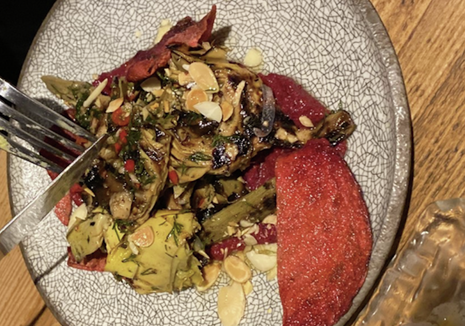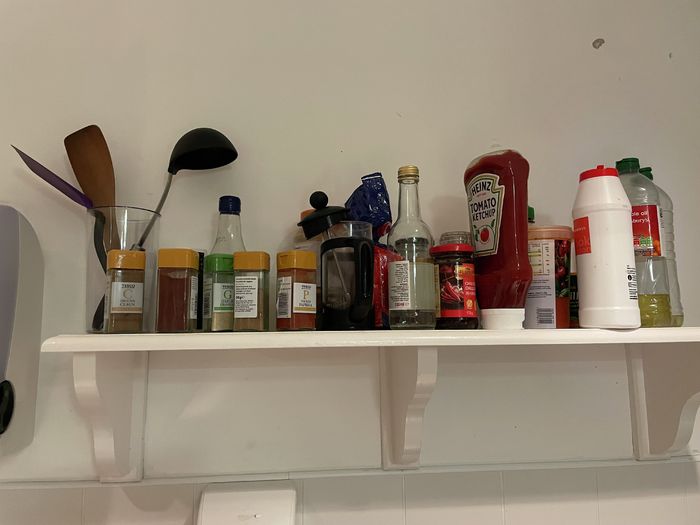Can the 20-a-week rule trump the 5-a-day rule?
Sofia Johanson shares her experience experimenting with her microbiome, and how to put a less toxic spin on diet culture

Let me fist highlight the difference between a diet and Diet. We are not dealing with calorie counting, meal replacements, or only eating spinach and lentils. I am referring to changing one’s Diet, not trying out a short-term, nose-dive style diet.
Now that I’ve given you that disclaimer, let me tell you about Tim Spector. Tim Spector OBE is behind the app ZOE, on which millions of people recorded their Covid-19 symptoms back in those distant days of yore. But this app was actually initially used to chart nutrition in twins, and I am interested in Spector because he has also written a lot about Diet with a capital D, and about the “microbiome”.
Don’t worry, you are in Lifestyle, the science-y bit is over soon. If you do want a rigorous analysis of Spector’s work, I suggest you don’t trust a creatively-minded Russianist who abandoned science the day she finished her GCSEs.
“Really, it wasn’t that difficult. Yet ease wasn’t what I was primarily interested in”
His book Spoon Fed deals with myths about food rules which we, along with our good mate diet culture, have come up with – eat less fat, carbs are the devil, etc. What he suggests is that we redirect our eating habits towards increasing our microbiome diversity, as this can determine overall health and longevity.
Anyway, as it always does in the New Year, diet culture had a good romp around when gyms were advertising discounted memberships, and supermarkets were helpfully offering to help us lose the Christmas weight. Spector gave an interview to The Times offering advice on how we can improve our Diet, without going on a diet. One suggestion caught my attention: eating 20 different plants a week can significantly improve the diversity of bacteria in your microbiome.
I remember discussing this with friends in hall, who, over their plates of beige, were lost for words at this number. So naturally, as I am belligerently determined to do anything that people say is difficult (within reason, I mean things like applying to Cambridge, not ascending Everest), I had to try it.
So, I always have banana and blueberries in my yoghurt for breakfast – we’re at two already. During my attempt, I discovered the beauty of side salads early on, adding lettuce, rocket and cherry tomatoes to my list, which made me wonder whether different types of tomato count separately. I’ll call Tim and get back to you on that.
Chucking a random vegetable into pasta (I went for adding broccoli to my Tuscan sausage penne ready meal) helped, as did making the most of the salad bar in hall – a sprinkling of diced beetroot or some sweetcorn with my jacket potato. I was at eight by Wednesday, light work. My Nakd bars were also useful, giving me dates and nuts (which do count), while my punnet of mango on Thursday night gave me an extra point, in addition to a dent to my bank account.
While all this sounds vaguely normal, I did get a bit carried away. Spector also told me to eat fermented foods, so now I regularly have forkfuls of kimchi as a snack.
“The problem (sorry, one of the many problems) with diet culture is that it makes us see food as a tool to sculpt our bodies to our liking at a rapid pace”
I wanted to ascertain whether this food “rule” – which are so frequently the cause of so much harm and restriction – was in fact toxic.
And I really don’t think it is; while most diets tell you what to limit, when to eat, how to balance food groups and forces you to put strict controls on what goes into your body, this principle wants you to add to your existing Diet, a notion foreign to most serial dieters.
Sure, only following the 20-a-week rule will probably not help you lose weight, nor gain muscle, but the changes it could make to your insides are probably worth considering.
Not only is this entirely unreasonable, it makes us forget that food has an impact on the bits of our body that we don’t see, the bits that truly determine how healthy we are, and therefore how we feel both emotionally and mentally.
I tentatively invite you to give it a try. Your microbiome (whatever that really is) will thank you.
 News / Cambridge bus strikes continue into new year16 January 2026
News / Cambridge bus strikes continue into new year16 January 2026 News / Uni members slam ‘totalitarian’ recommendation to stop vet course 15 January 2026
News / Uni members slam ‘totalitarian’ recommendation to stop vet course 15 January 2026 Science / Why smart students keep failing to quit smoking15 January 2026
Science / Why smart students keep failing to quit smoking15 January 2026 Interviews / The Cambridge Cupid: what’s the secret to a great date?14 January 2026
Interviews / The Cambridge Cupid: what’s the secret to a great date?14 January 2026 News / Cambridge local elections to go ahead in May despite local government reorganisation16 January 2026
News / Cambridge local elections to go ahead in May despite local government reorganisation16 January 2026









